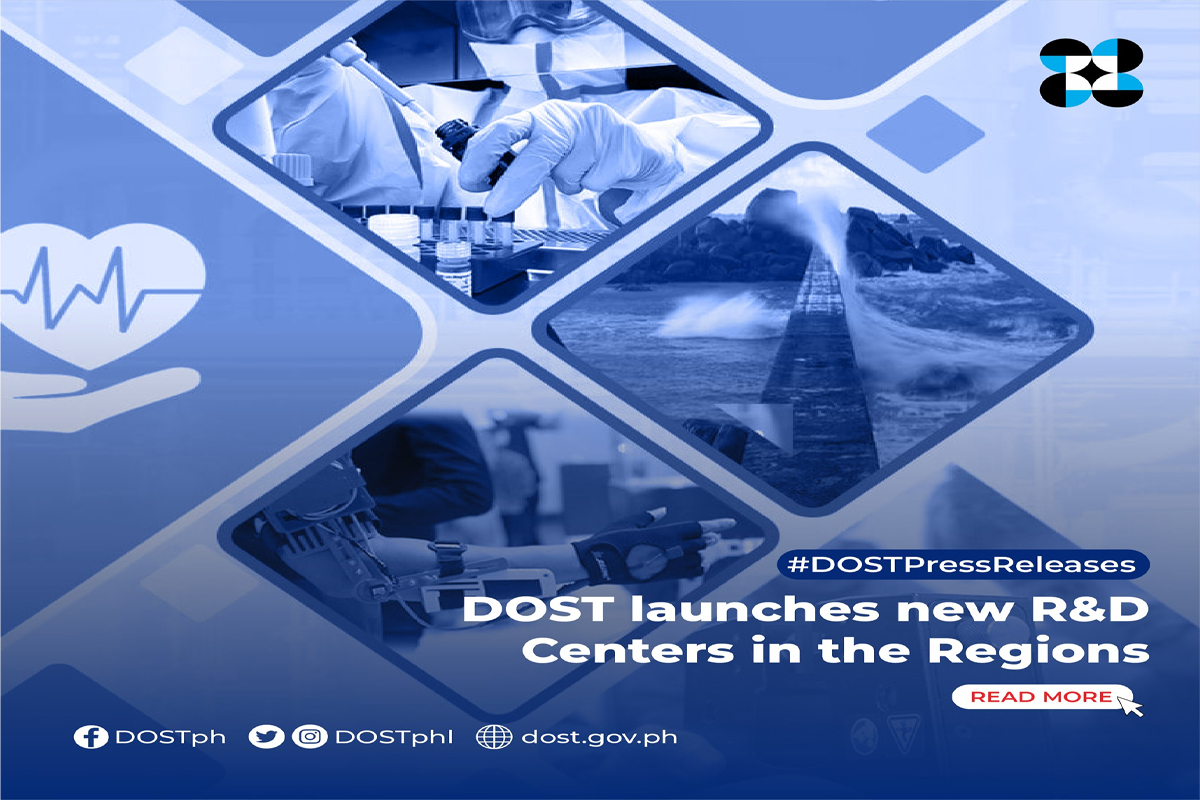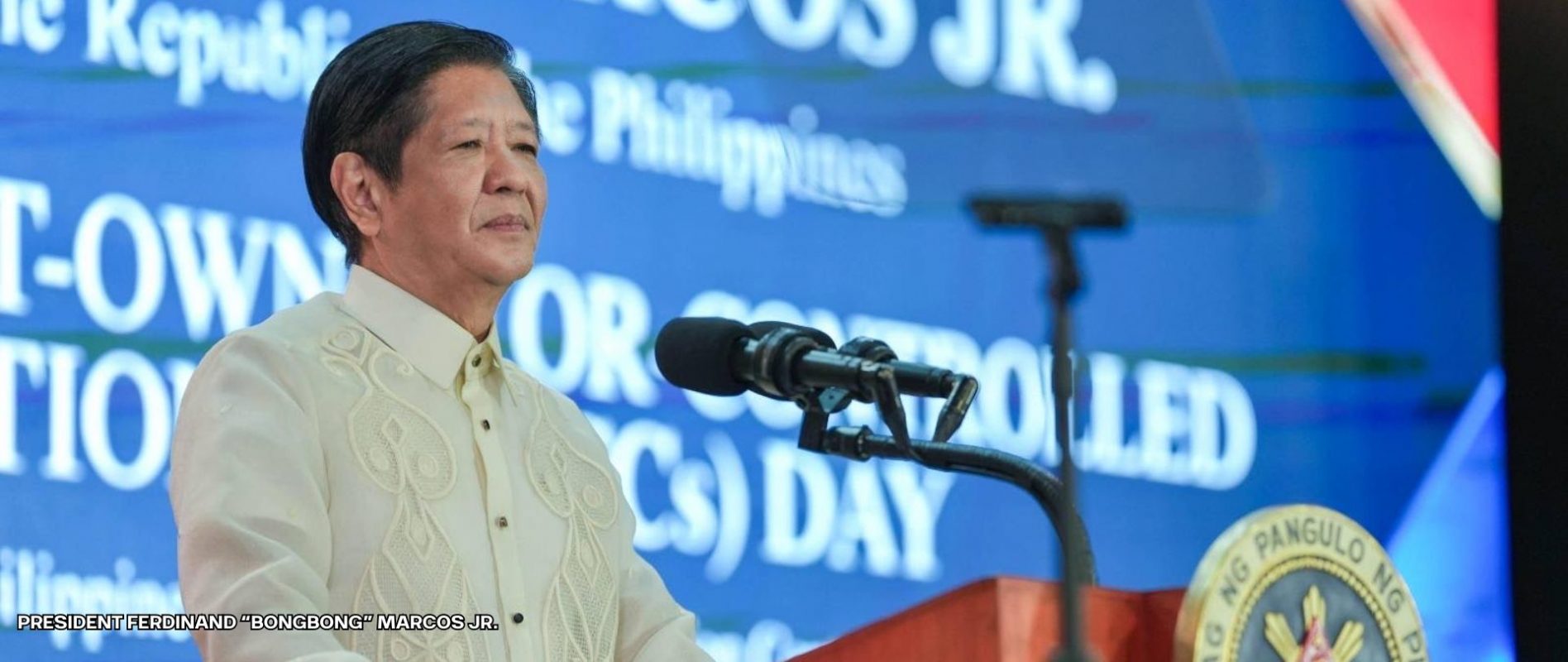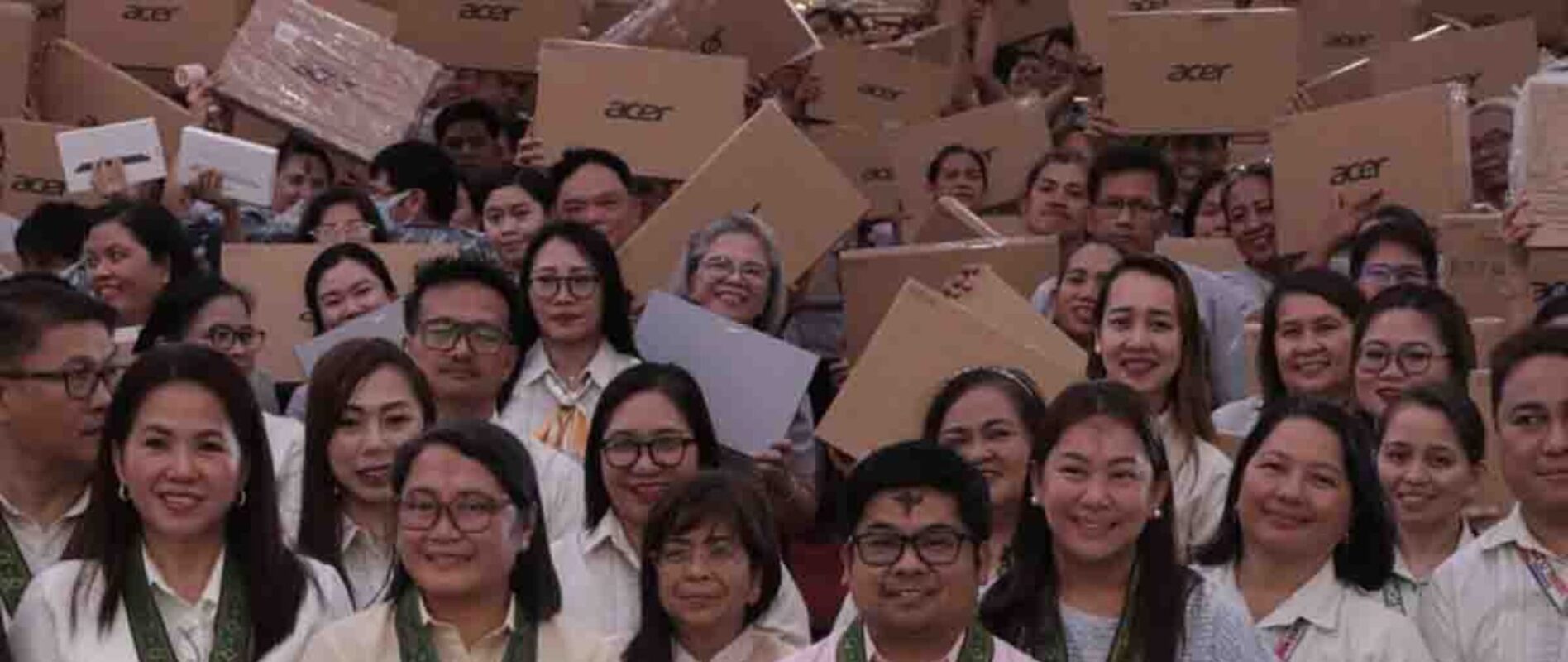DOST UNVEILS 11 NEW RESEARCH AND DEVELOPMENT CENTERS
THE DEPARTMENT of Science and Technology for Change Program recently unveiled 11 research and development centers for the health, environment and food security sectors.
These “Niche Centers in the Regions for R&D or NICER” will allow the country’s academic and R&D institutions “to upgrade their research facilities, develop policies, transfer technologies and ramp up regional initiatives.”
The 11 new centers are managed by higher educational institutions in Ilocos, Cagayan Valley, Central Luzon, Calabarzon, National Capital Region and Northern Mindanao.
“Through these R&D centers, the DOST cultivates the innovation landscape in various sectors to ensure no one is left behind in R&D progress despite the setbacks brought about by the Covid19 pandemic,” Dr. Rowena Cristina Guevara, DOST undersecretary for Research and Development, said.
Among the NICERs showcased is the R&D Center for Advanced Batteries of the Technological Institute of the Philippines which aims to develop advanced batteries for renewable energy and electric vehicle applications.
Another R&D hub is the Center for Environmental Technologies and Compliance of the Polytechnic University of the Philippines that will provide innovations in environmental technology to help local industries comply with established environmental standards.
It aims to promote environmental compliance of micro, small, and medium enterprises in Metro Manila and realize the standard model for clean industrial cities in the region, the department said.
Meanwhile, the Coastal Engineering R&D Center of the Don Mariano Marcos State University will provide an effective strategy for coastal protection and climate change mitigation “to reduce agricultural losses due to coastal disasters with an estimate cost of around one billion pesos annually.”
The Smart Water Infrastructure and Management R&D Center the Isabela State University eyes to provide innovations in water management and promote disaster-resilient infrastructures.
The Laguna State Polytechnic University’s Center for Lakes Sustainable Development project will develop solutions and strategies for the effective management and sustainability of lakes “envisioned to lead to the transformation of vulnerable communities to disaster-resilient communities, capable of sustaining adaptation to climate change.”
The Center for Sustainable Polymers of the Mindanao State University-Iligan Institute of Technology is seen to have the potential to generate value-added products such as polymer-infused concrete and foams “from coconut processing by-products, and nutraceutical, and biomedical products from fish processing by-products.”
Meanwhile, the Center for Vector of Diseases of Public Health at the De La Salle University-Laguna campus will spearhead the study of insecticide resistance of mosquitoes, formulation of biomosquitocide against mosquito larvae, and use of natural predators to control the mosquito population.
The Integrated Protein Research and Development Center is a facility for product-centric contribution to the production of proteins used by the biomedical, agricultural and food industries.
Likewise, the Angeles University Foundation’s Biomaterials for Diagnostics and Therapeutics Research and Development Center “will be a key player” in the development of local health technologies that address priority diseases.
There is also the Integrated Protein Research and Development Center: A Biotechnology Facility for Health at Ateneo de Manila University.
The De La Salle University-Institute of Biomedical Engineering and Health Technologies will serve as the premier venue for neurorobotic research and development in the country.
It seeks to enable, deliver, and provide innovative products, services, and solutions geared at bringing health care and other related fields to the next level.
“By optimizing these science and technology-related initiatives, we envision a more efficient, supported, and developed innovation landscape for the Philippines that would cater to the needs of Filipinos nationwide,” DOST Secretary Fortunato de la Peña said.
“These are one of our major strategies in our desire to have science and technology as a tool for inclusive and sustainable development,” he added.














